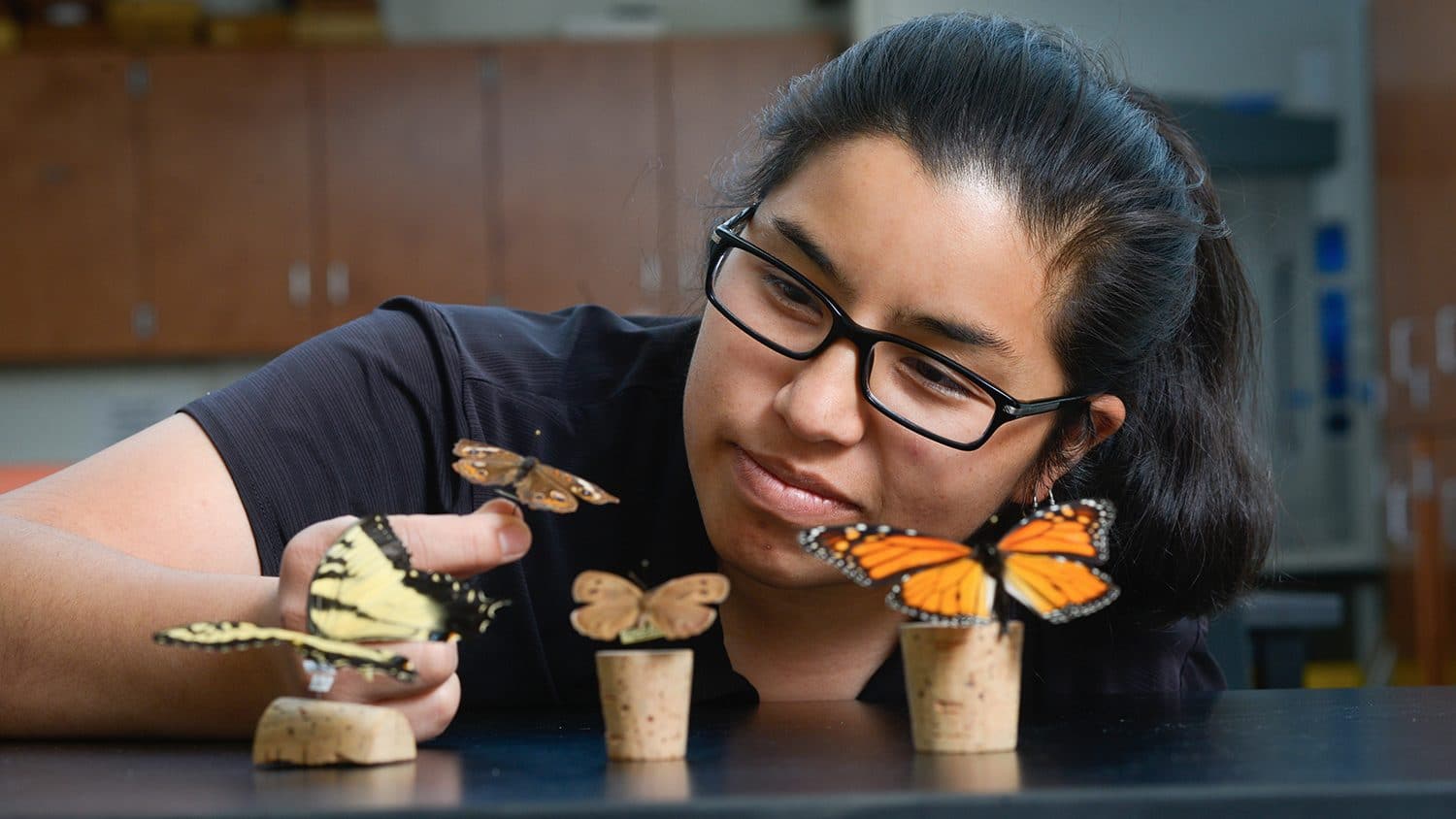The study of ethology is expanding quickly, and What Does an Ethologist Do? Is a question to start your research and career path.
When you don’t ask relevant question you walk in darkness, questions give you clarity on misunderstood ideas.
Since the beginning of the twenty-first century, scientists have reexamined and come to new understandings in several relating animal areas communication, emotions, culture, learning, and sexuality.
In this article, we intend to take you through everything about an ethologist, keep reading as we give you a better understanding of What Does an Ethologist Do? Salary, Requirements, Schools.
Table Of Contents
- What Is Ethology?
- Who is An Ethologists?
- What are The Roles Of An Ethologist?
- How To Become an Ethologist
- Ethologist Job Description
- Where Do Ethologists Work?
- What Degree Do You Need to Be an Ethologist?
- How Long Does it Take to Become an Ethologist?
- Ethologist Salary
- 5 Best Schools For a Ethology
- Ethology Jobs Near Me
- FAQs
- Conclusion
- References
- Editor’s Recommended Posts
What Is Ethology?
The scientific study of non-human animal behavior called ethology, and it usually focused on behavior in it’s natural settings and sees behavior as an evolutionary adaptive quality.
Who is An Ethologists?
A scientist who investigates animal behavior is known as an ethologist. They may research farm animals, wild animals, or cattle to learn more about their innate behavioral patterns.
What are The Roles Of An Ethologist?
You must perform the following things as an ecologist:
Engage in field research outside, which entails watching animals intently, noting associated behavior, taking pictures, and using other tools as necessary to record findings.
To comprehend how animals react when resting, eating, caring for their young, etc., do a control research on them in lab conditions.
To oToaden the scope of the work, seek funding to continue your research and engage with investors.
Track animal behavior with other scientists, particularly rats, rabbits, and mice, to test drugs or observe how certain diseases affect the animals.
Ethologist Daily Life
Ethologists spend their time close to animals to observe, research, and record their behavior, whether locating possible mates, fending of hazards in the environment, or just living in general.
While this is the main focus, you can also examine an animal’s genetic makeup and physiological makeup by simulating a similar environment in a lab.
Daily tasks will vary greatly depending on the type of job you do; for example, working with a wildlife research program will need more hands-on duties than working as a research partner in a lab.
Most ethologists spend a lot of time on research from numerous direct and indirect sources since they plan to publish academic papers in the long run.
Ethologist Work Schedule
You must be ok with irregular working hours in difficult terrain if you decide to become an ethologist for a research facility, zoo, or animal sanctuary. In that situation, the work timetable varies according to the volume and caliber of the work.
To gather knowledge of an animal’s behavior in its natural environment, you can search for it in isolated river basins or forested regions.
Educate, and conduct experiments, you may as well work in typical office settings like research institutes, laboratories, colleges, and universities.
Same working hours of 9 am to 5 pm and designated vacation or leave days apply to these duties as they would to those of any academic professional.
Ethologist Job Growth
The U.S. Department of Labor Statistics projects that between 2014 and 2024, employment opportunities in ethology and associated fields will grow by 4%.
Those who concentrate on natural habitats, the biotechnological effects of preventing major diseases, and thefollowing of genetics will have lucrative employment.
There several options available if you would take a different route in your profession.
For instance, you could focus on becoming a veterinarian to treat domesticated farm animals, pets, and occasionally wild animals.
If you appreciate the notion of studying microscopic organisms like bacteria or viruses, you can potentially consider a career as a microbiologist.
How To Become an Ethologist
For every field of career you choose, there is a process to follow. In ethology, you need at least a bachelor’s degree in an area related to ethology, such as animal science, wildlife management, biology, ecology, veterinary medicine, animal behavior, etc.
Working with animal specimens in laboratories under a microscope may be an additional requirement coursework.
A bachelor’s degree is a fantastic place to start in this sector, but in option high-level teams and projects, you must also finish your master’s degree.
You need to develop strong biology and math skills if you want to be successful in this field. Also, you should feel at ease working directly with various animals and have the utmost regard for them.
Clear written and vocal communication skills, and the willingness to go wherever the job takes you, will also help you stand out as an ethologist.
This is very important because you will make your language more understandable to experts outside your area of expertise.
You should also have a solid understanding of the connections across the sciences and be able to express these concerns clearly because some of the work you do as an ethologist involves working in collaboration with other scientists or researchers.
Ethologist Job Description
What Do Ethologists Really Do? An ethologist’s typical workday can include observing animal behavior in its natural setting, creating ethograms (catalogs of animal behaviors), conducting research on animal behavior, and writing up or publishing the results.
Where Do Ethologists Work?
Ethologists can work at research organizations, universities, and other places. So many people deal with animals in their natural habitats, while others work in laboratories.
What Degree Do You Need to Be an Ethologist?
You must have at least a bachelor’s degree in an area related to ethology.
How Long Does it Take to Become an Ethologist?
Typically, ethologists who want to work as senior scientists need a degree. A doctorate takes five to seven years to complete, depending on your prior academic preparation, school, and field of specialization.
Ethologist Salary
The information below will help you learn more about this profession. The editing material and recommendations on the page are based on our research, while the income and growth information on the newly released Bureau of Labor Statistics.
Annual National Salary
Low to Medium: $46,180
Average: $71,830
Highest: $120,500
Annual Hourly Pay
Minimum: $22/Hr
Average: $35/Hr
Large Range: $58/Hr
How do ethologist salaries compare to those of other professions nationwide? According to the most recent data on employment in the country, ethnologists can earn an average yearly salary of $71,830, or $35 per hour.
5 Best Schools For a Ethology
#1.University of California – Davis
Davis, CA
One of the best universities in the nation for earning a degree in animal behavior and ethology is the University of California – Davis. UC Davis is a public institution with a sizable student body in a Davis suburb.
UC Davis is a fantastic university overall, ranking #57 out of 2,241 institutions globally looking by Best Colleges.
In the most recent year, roughly 6 students at UC Davis earned this degree in animal behavior and ethology.
#2. Bucknell University
The best universities in the country to study animal behavior and ethology is Bucknell University. Bucknell University is a private, non-profit institution with a modest student body locatedin Lewisburg.
Of 2,241 institutions nationwide, Bucknell is ranked #54 by Best Colleges, indicating that it is an excellent institution overall.
#3. Indiana University – Bloomington
If you wish to study animal behavior and ethology, it is tough to outperform Indiana University-Bloomington. In the little city of Bloomington, there is a reasonably sizable public university called IU Bloomington.
IU Bloomington is a top-notch institution overall, coming at #58 out of 2,241 universities nationwide on the Best Colleges list.
The school has graduated, and around 39 IU Bloomington students received this degree in animal behavior and ethology.
#4. Franklin and Marshall College
College is one of the finest schools in the country for getting a degree in animal behavior and ethology. Franklin and Marshall is a small private not-for-profit college in the city of Lancaster.
A Best Colleges rank of #189 out of 2,241 schools nationwide means Franklin and Marshall is a great college overall.
They were 10animal behavior and ethology students who has graduated with this degree at Franklin and Marshall in the most recent data year.
#5. Arizona State University – Tempe
The rather sizable public university ASU-Tempe is in the medium-sized city of Tempe. ASU – Tempe is a fantastic university overall, as evidenced by its ranking of #130 out of 2,241 universities nationwide by Best Colleges.
Recently, a student from ASU – Tempe received a degree in animal behavior and ethology.
Ethology Jobs Near Me
#1. Zoo Camp Counselor
Information about the position
A wage of $17 per hour
Kind of Work: Full-Time
A complete job description
Communities are motivated by the Lincoln Park Zoo to develop habitats that will support wildlife in our rapidly urbanizing planet. The zoo is a pioneer in science, education, animal welfare, and conservation on a local and global scale.
The non-profit Lincoln Park Zoo, a famous Chicago landmark established in 1868, is privately run, member-supported, and open every day of the year for free.
Lincoln Park Zoo Camps
From 4 years old to students entering grade 8, Lincoln Park Zoo Camps provide facinating exploring opportunities for animal and nature enthusiasts.
Each camp group visits the zoo and takes part in activities to learn about the zoo’s animal diversity, environmental conservation, animal care practices, and our role in preserving wildlife in the wild.
They are Searching For…
The Lincoln Park Zoo is seeking outgoing, people who enjoy working with kids to become part of the Camp Team as Zoo Camp Counselors.
Counselors will teach a range of inquiry-based and hands-on activities to children to give them meaningful and memorable summer learning opportunities.
Camp counselors work from Monday through Friday, most days starting at 8 am and endin at 3:30 pm. After Care concludes at 5:15 p.m., camp counselors are required to work up to twice a week in this program.
Three sleepovers with the oldest campers will take place throughout the summer, and counselors who work with campers in Grades 6 through 8 will be required to spend the night at the zoo. The commitment period for this job is 10 weeks.
Exercise: June 4–8, 2024
June 12–30, and July 10–August 18, 2024, camp dates. (Camp won’t be open from July 3–7)
Expectations and Necessary Training
The full-time, seasonal position of Zoo Camp Counselor reports to the Camp Programs Coordinator.
Duties of a zoo camp counselor include overseeing the health and safety of campers, and instructing material from a pre-developed curriculum creatively and engagingly with other counselors.
Allowing meaningful interactions with campers, offering top-notch customer service to camp families, and maintaining a professional, secure, and enjoyable work environment.
- You must have completed at least one year of college and be entering your sophomore year or higher to be eligible.
- Spanish language proficiency is preferred.
- Willing and able to rigorously carry out Lincoln Park Zoo’s health and safety procedures, including using cleaning supplies, being outside, and wearing a mask (if policy requires it).
- Finish First Aid and CPR/AED Certification through the zoo or independently.
Expected Roles of the Position
- Teach using an already prepared curriculum
- Provide curriculum material in an entertaining and distinctive style that will interest campers and connect them to the natural environment.
- Participate actively in all camp activities.
- Encourage campers to use their problem-solving skills.
- Manage a 14–16 camper group that is safe and well-run.
- As required by policy, use a disposable mask when inside buildings.
- Keep your hands clean at all times while on zoo property.
#2. Some Will Train a Dog
The salary guide on Indeed
Not offered by the employer
The position in Lake Villa, Illinois, indeed estimates compensation between $27.2K and $34.4K annually.
The training department at Shag Bark Canine Resort & Spa is looking for a motivated, skilled, and qualified “positive” dog trainer to lead group classes, one-on-one sessions, seminars, and lodge & Learn programs.
Additional duties would include regularly reviving the curricula, incorporating the “mentality” of training into the other divisions, and engaging in public relations and marketing initiatives.
Competitive beginning pay, that is in line with the expertise and credentials of the applicant.
Job Requirement
Candidate must possess strong public speaking abilities, be aware of the various learning styles, and be able to modify content delivery strategies in other to interact with everyone in an audience effectively. Ability to work individually or as part of a team.
Ethology and learning theories in psychology must be thoroughly understood, both theoretically and practically. Recognize the cues that dogs send through their body language.
It’s crucial to have experience training dogs using different canine curricula: puppy, good manners, advanced manners, agility, aggression, behavioral problems, scent work, and enjoyable behaviors.
The position calls for a motivated individual who can motivate others by showing them how to achieve their unique training objectives in a lively, engaging environment.
The company seeks the perpetually modest learner eager to get something new on their own and from difficult circumstances, they come into. Combine a love of training dogs with a desire of imparting knowledge to others.
- Plus: an associate’s degree or higher
- Outstanding verbal communication abilities
- CPDT-KA certification or eligibility to take the test is also advantageous.
- Shag Bark has a two-step hiring procedure. Only those who complete both stages will be hired.
Application Phase 1 and Hiring Seminar Phase 2.
Read Related Article
#3. Lecturing Position
Information about the position
Kind of Work Part-Time
Lecturer Full Job Description
Title: Lecturer (200-YN FACULTY)
Occupational Title: Lecturer
Further Titles:
Job location: Washington State University.
Faculty (+) is a type of employee (Fixed Term)
Faculty-Academic-OT Eligible Job Family
Position Information:
Information about the position
Kind of Work Part-Time
Lecturer Full Job Description
Title: Lecturer (200-YN FACULTY)
Occupational Title: Lecturer
Further Titles:
Job Location: Washington State University.
Faculty (+) is a type of employee (Fixed Term)
Faculty-Academic-OT Eligible Job Family
Position Information:
For the Spring Semesters starting in 2024, the Animal Sciences Department of the College of Agriculture, Human, and Natural Resource Sciences (CAHNRS) is currently seeking applications for a temporary part-time instructor position.
In addition to being a “writing the major” (M) course, Anim Sci 485 is a three-credit undergraduate course in applied animal behavior that focuses on livestock species. The role is in charge of all aspects of instruction for this course.
The instructor is responsible for creating the syllabus and curriculum, delivering all lectures, creating the grading rubric and graded assignments, grading all required writing tasks, managing and assigning grades, and ensuring that the course’s goals and learning outcomes are met.
The ideal candidate will have a Ph.D. in livestock ethology or animal sciences/biology, be an experienced teacher, have understanding of behavior that can be demonstrated, and performed effectively and with energy in the classroom.
Each spring semester, the appointment may be extended depending on demand, performance, and financial resources.
Necessary Credentials:
Degree in a relevant discipline earned.
Preferred credentials:
- Obtained a Ph.D. in animal biology or ethology of livestock
- knowledge, training in behavior that can be proven
- Experience Teaching in Higher Education
Read More Related Post
FAQs
The study of animal behavior is called ethology.
Ethologists examine animal behavior in its natural environment and search for behavioral patterns. Animals, whether domesticated or wild, exhibit certain innate and instinctual behaviors that is studied scientifically in different ways.
You need at least a bachelor’s degree in an area related to ethology, such as animal science, wildlife management, biology, ecology, veterinary medicine, animal behavior, etc.
Working with animal specimens in laboratories under a microscope may be a requirement coursework for such programs.
Behaviorism is a branch of psychology, whereas ethology is a branch of biology that examines animal behavior.
The basic cause-and-effect relationship of behavior is also a key component of behaviorism, particularly to operant or classical conditioning.
Conclusion
Becoming a specialist in any field of study or career path you choose. Require great commitment.
Defining What Does an Ethologist Do? Their Salary, Requirements, and Schools are not all that matters, being able to represent yourself as an expert is key.
That is why we took our time to lead you through every necessary information in the above article. We hope you got value, please do leave us a comment in the comment session below.
References
Editor’s Recommended Posts
- How to Become a Doctor in Canada in Lesser Time | Schools, Requirements, Cost
- How to Become a Train Conductor at Little or No Cost: Licenses, Training, Requirements, Salary, Expert Tips 2024
- How Can I Become an Aircraft Mechanic in 2024? Schools, Career, Cost, and Salary
- 15 Best Medical Assistant Schools in 2024: Cost, Salary and Online Schools





